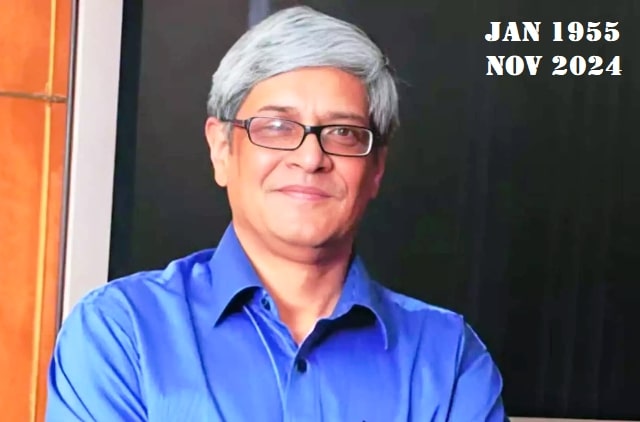
Bibek Debroy: A Luminary in Indian Economics
On November 1, 2024, the Indian economic community mourned the loss of a towering figure, Bibek Debroy, who passed away at AIIMS Delhi after battling health issues for several months. Yet, even in the face of adversity, he maintained a remarkable dedication to his professional obligations and scholarly duties, demonstrating a sharp intellect and characteristic wit until the very end. As the Chairman of the Economic Advisory Council to the Prime Minister (EAC-PM), Debroy’s contributions to Indian economics were profound and far-reaching, making him an indelible part of the nation’s economic narrative.
Debroy’s tenure at the EAC-PM was marked by significant achievements, where under his leadership, the team flourished and worked diligently towards the larger goal of Vikasit Bharat, a developed India. His vision encompassed not only economic growth but also social equity, aiming to create an inclusive framework for progress. Debroy’s wealth of institutional knowledge and understanding of administrative history made him a treasured asset to the Council. He was a mentor to many, providing guidance and encouragement while nurturing a broader curiosity among his colleagues and students. His influence on young researchers was particularly noteworthy; many found their professional calling under his tutelage, benefitting from his expertise and passion for economics.
Bibek Debroy was a scholarly giant, distinguished by his eclectic interests and pursuits. His academic work spanned various fields, reflecting a unique blend of expertise that is rare in the discipline of economics. Among his many passions was the translation of Sanskrit texts, an endeavor that highlighted his deep appreciation for India’s cultural and intellectual heritage. Debroy believed that understanding ancient texts was crucial for grasping the roots of contemporary society, and his translations made significant contributions to this field, bridging the gap between historical scholarship and modern understanding.
His commitment to cultural scholarship was matched by his dedication to practical reforms, particularly in the realm of Indian railways. Debroy recognized that a robust railway system was essential for both economic growth and social connectivity. He argued that effective transportation infrastructure could enhance productivity, create jobs, and ultimately lead to a more integrated economy. His research and recommendations on railway reforms were not merely theoretical; they were grounded in a thorough understanding of the challenges and opportunities facing India’s railway system. He advocated for modernization and efficiency while emphasizing the need for inclusivity and accessibility, ensuring that improvements benefited all sections of society.
Debroy’s interests were not confined to the corridors of academia; they extended to the nuances of everyday life and culture. For instance, his unique research into the role of dogs in Indian and Hindu life was a testament to his belief that economics must be contextualized within the larger tapestry of human experience. By examining the intersections of culture, economics, and social behavior, he brought a holistic perspective to his work. This interdisciplinary approach not only enriched his research but also inspired others to think beyond traditional boundaries.
As an economist, Debroy’s work covered a vast array of topics, including economic theory, income inequality, and infrastructure financing. His insights into income inequality were particularly critical in a country like India, where disparities in wealth and access to resources are profound. He was an advocate for policies that sought to address these inequalities, emphasizing that sustainable economic growth must go hand in hand with social equity. His research shed light on the complexities of income distribution and provided policymakers with frameworks to create more equitable systems.
Infrastructure financing was another area where Debroy made significant contributions. He understood that infrastructure is the backbone of economic development and that innovative financing solutions are crucial for progress. His recommendations often highlighted the need for public-private partnerships, creative financing models, and efficient resource allocation. By emphasizing the importance of infrastructure in facilitating economic activity, he played a pivotal role in shaping discussions around national development strategies.
Throughout his career, Debroy was not only a prolific writer and researcher but also a communicator of complex ideas in a way that was accessible to a broader audience. His ability to convey intricate economic concepts with clarity and precision made him a sought-after speaker and commentator. He engaged with the public through various platforms, fostering an understanding of economic issues among non-specialists. His passion for educating others about economics was evident in his writings, lectures, and discussions, where he combined depth of knowledge with a relatable approach.
The impact of Debroy’s work extended beyond academia and policy circles. He was deeply loved and admired by a diverse range of individuals, from economists to policy enthusiasts and Sanskrit scholars. His genuine interest in nurturing talent and promoting intellectual discourse created a supportive environment for learning and collaboration. Many of those who worked with him speak fondly of his mentorship, recalling how he encouraged them to pursue their interests and develop their voices in the field.
Bibek Debroy’s passing leaves a significant void in the Indian economic landscape, but his legacy will undoubtedly endure. The principles he championed equity, inclusivity, and intellectual curiosity remain vital as India continues on its path toward development. His scholarly contributions and policy recommendations have laid a foundation for ongoing discussions and efforts to address the complex challenges facing the country.
As we reflect on his life and contributions, it is essential to recognize the values he embodied. Debroy was not just a scholar; he was a thinker who sought to connect the dots between economics, culture, and everyday life. His belief in the importance of interdisciplinary approaches encourages future generations of economists and researchers to explore the rich interplay between different fields of study.
In commemorating Bibek Debroy, we honor a life dedicated to the pursuit of knowledge and the betterment of society. His commitment to fostering curiosity and encouraging others to engage with complex ideas will inspire future scholars and policymakers. As India strives for a developed and equitable future, the lessons learned from Debroy’s work will guide and inform the path forward.
In conclusion, Bibek Debroy was a multifaceted intellectual whose contributions to Indian economics and culture were nothing short of extraordinary. His profound insights, unwavering dedication, and infectious curiosity enriched the lives of many, creating a legacy that will continue to influence and inspire. He will be missed dearly, but his impact will resonate in the ongoing journey toward a Vikasit Bharat. As we navigate the challenges and opportunities ahead, let us carry forward his spirit of inquiry, commitment to equity, and love for learning, ensuring that his vision for India lives on in the hearts and minds of those he inspired.
The writer is an Indian technocrat, political analyst, and author. The views expressed in the article are his own. He is active on social media with his handle @prosenjitnth
For more details visit us: https://lokmarg.com/



